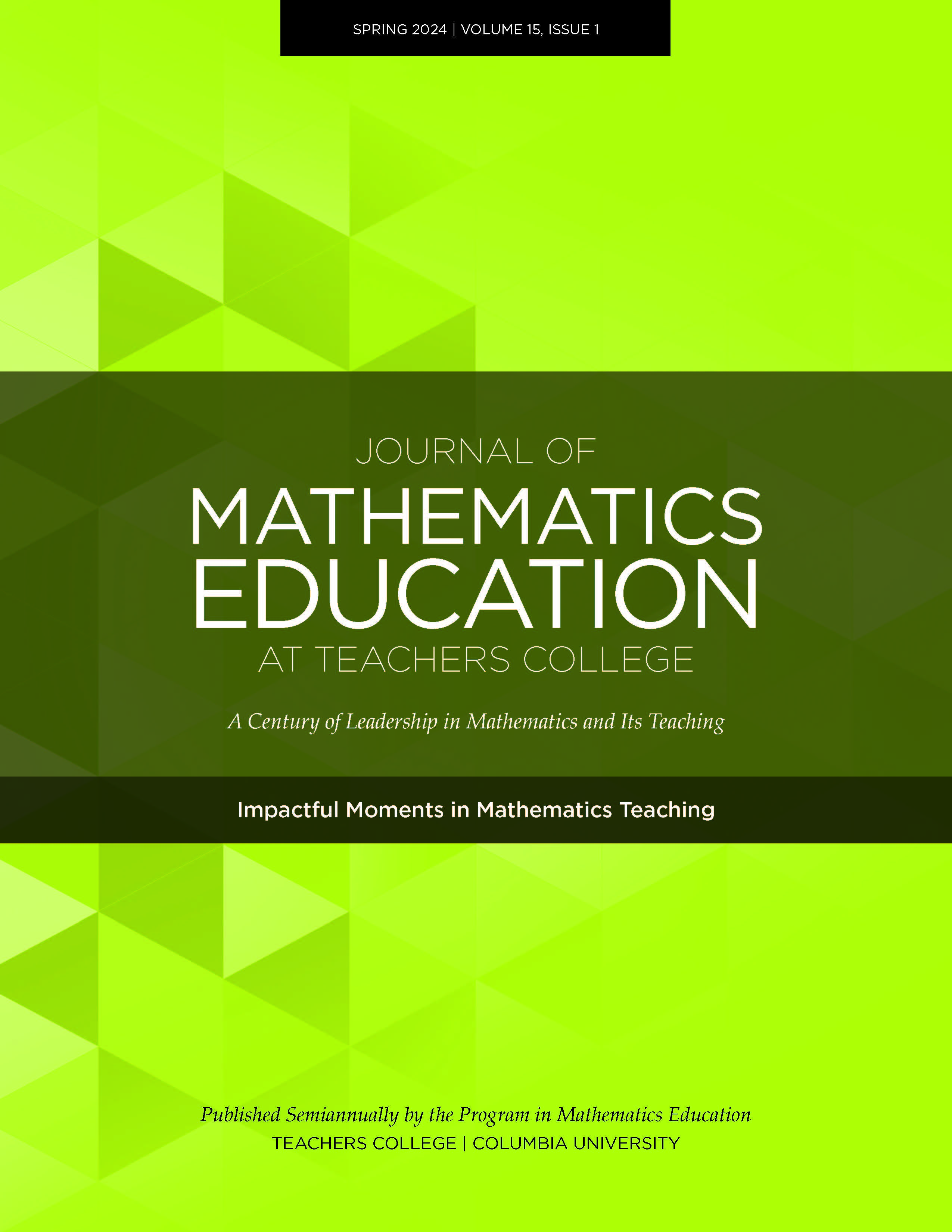A Problem-based Curriculum to Conceptually Develop the Multiplication Principle for Counting
Main Article Content
Abstract
Counting exercises are difficult (e.g., Batanero et al., 1997; Hadar & Hadass, 1981). As a case in point, although multiplication is a relatively simple concept, students often use multiplication incorrectly on counting problems (Batanero et al., 1997). To address this issue, this paper develops a problem-based curriculum to help students learn about the multiplication principle (MP) for counting. In this paper, we outline the important mathematical issues and nuances associated with the MP in our proposed exercise set, and discuss how mathematics educators could implement this sequence of exercises to develop students’ conceptual understanding of the MP. We conclude by discussing how our exercise set aligns with a broader theory of learning – variation theory.
Article Details

This work is licensed under a Creative Commons Attribution 4.0 International License.

